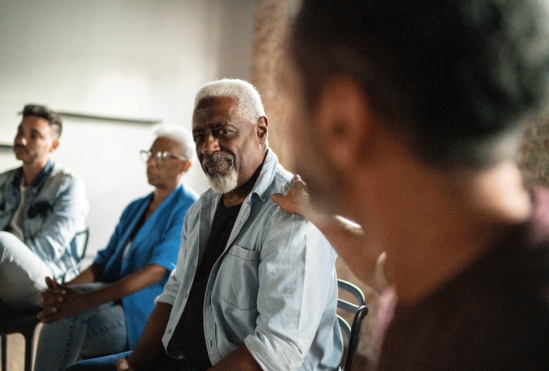
A Plan of Action for Wellness with the WRAP Workbook
One workbook our Executive Director, Donny Larson, would highly recommend for anyone in the recovery community is the Wellness Recovery Action Plan (WRAP) by Human Potential Press.
This workbook stands out as a comprehensive and empowering tool. Developed by mental health advocate Mary Ellen Copeland, WRAP is a personalized system designed to help individuals manage their mental health, identify triggers, and implement coping techniques. In this blog post, we will delve into the coping strategies encapsulated within the WRAP program and how they contribute to fostering a sense of empowerment and resilience.
The Wellness Recovery Action Plan is built on the principle that individuals are the experts on their own lives. WRAP encourages individuals to take an active role in their mental health by developing a personalized plan tailored to their unique experiences and needs. The program centers around five key concepts: hope, personal responsibility, education, self-advocacy, and support.
Coping Techniques in WRAP
Daily Maintenance Plan:
- At the core of WRAP is the idea of daily maintenance to proactively support mental well-being. This involves establishing a routine that incorporates activities promoting mental wellness, such as adequate sleep, balanced nutrition, exercise, and mindfulness practices. By prioritizing these elements, individuals can create a solid foundation for their mental health.
Triggers and Early Warning Signs:
- WRAP emphasizes the importance of recognizing triggers/stressors and early warning signs that may precede a decline in mental health. By identifying these cues, individuals can intervene early and implement coping strategies to prevent the escalation of challenges. This self-awareness is crucial for developing a proactive approach to mental health management.
Crisis Planning:
- WRAP includes a crisis plan designed to guide individuals through challenging times. This involves detailing specific actions to take, people to contact, and coping mechanisms to employ during a crisis. Having a well-thought-out crisis plan empowers individuals to navigate difficult situations with a sense of control and purpose.
Post-Crisis Planning:
- After a crisis, WRAP encourages individuals to reflect on the experience and develop a post-crisis plan. This involves identifying lessons learned, adjusting the existing plan if necessary, and seeking additional support or resources to enhance resilience for the future.
Social Support:
- Recognizing the significance of social connections, WRAP encourages individuals to build a support network. This can include friends, family, support groups, or mental health professionals. Establishing open communication and involving trusted individuals in the WRAP process ensures that there is a collaborative effort in maintaining mental wellness.
The Wellness Recovery Action Plan serves as a tool of empowerment for mental health, providing individuals with practical coping techniques to navigate the complexities of their experiences. We utilize this workbook at The Well because we operate with the same radical idea, our clients are the experts in their own recovery.
As we continue to explore and embrace holistic approaches to mental health, check out our Top 10 Coping Strategies blog here!
For more information about WRAP, head over to their website: https://www.wellnessrecoveryactionplan.com/what-is-wrap/
For questions please reach out to The Well’s Director of Development, Dana Wockenfuss: development@thewellne.org

